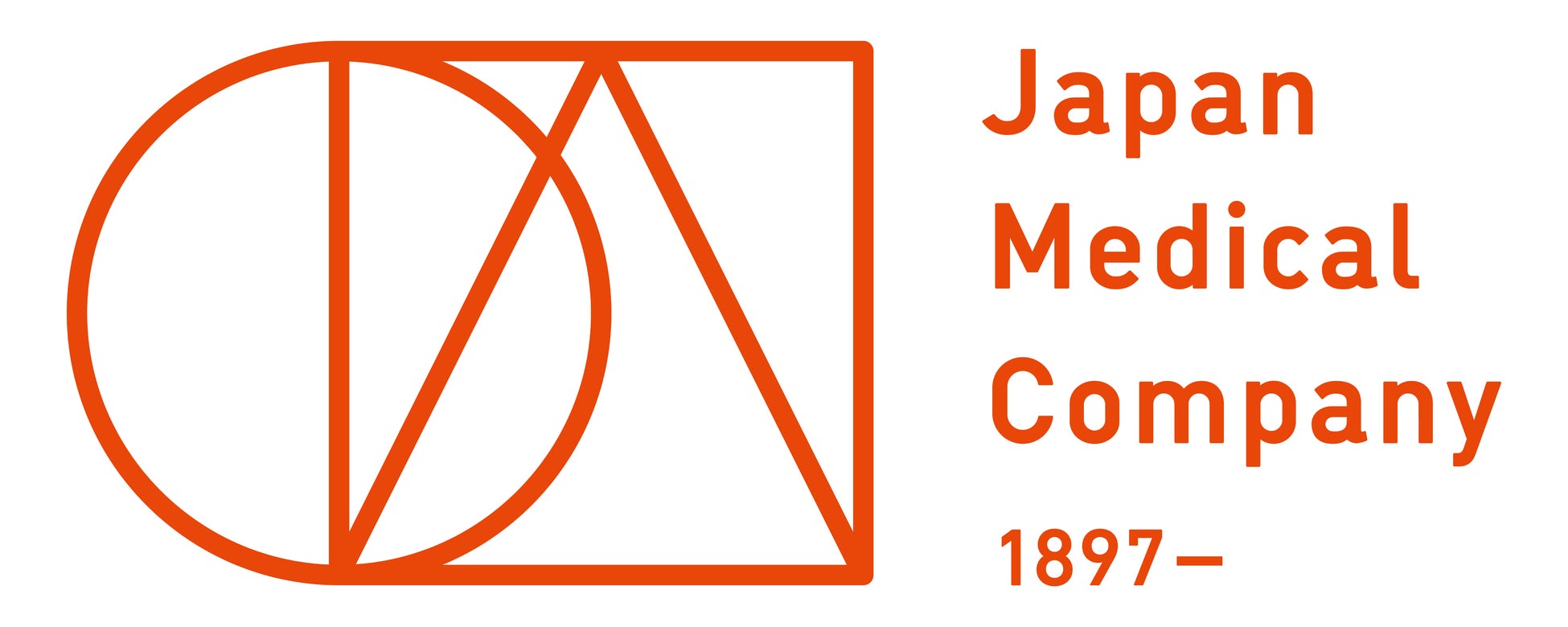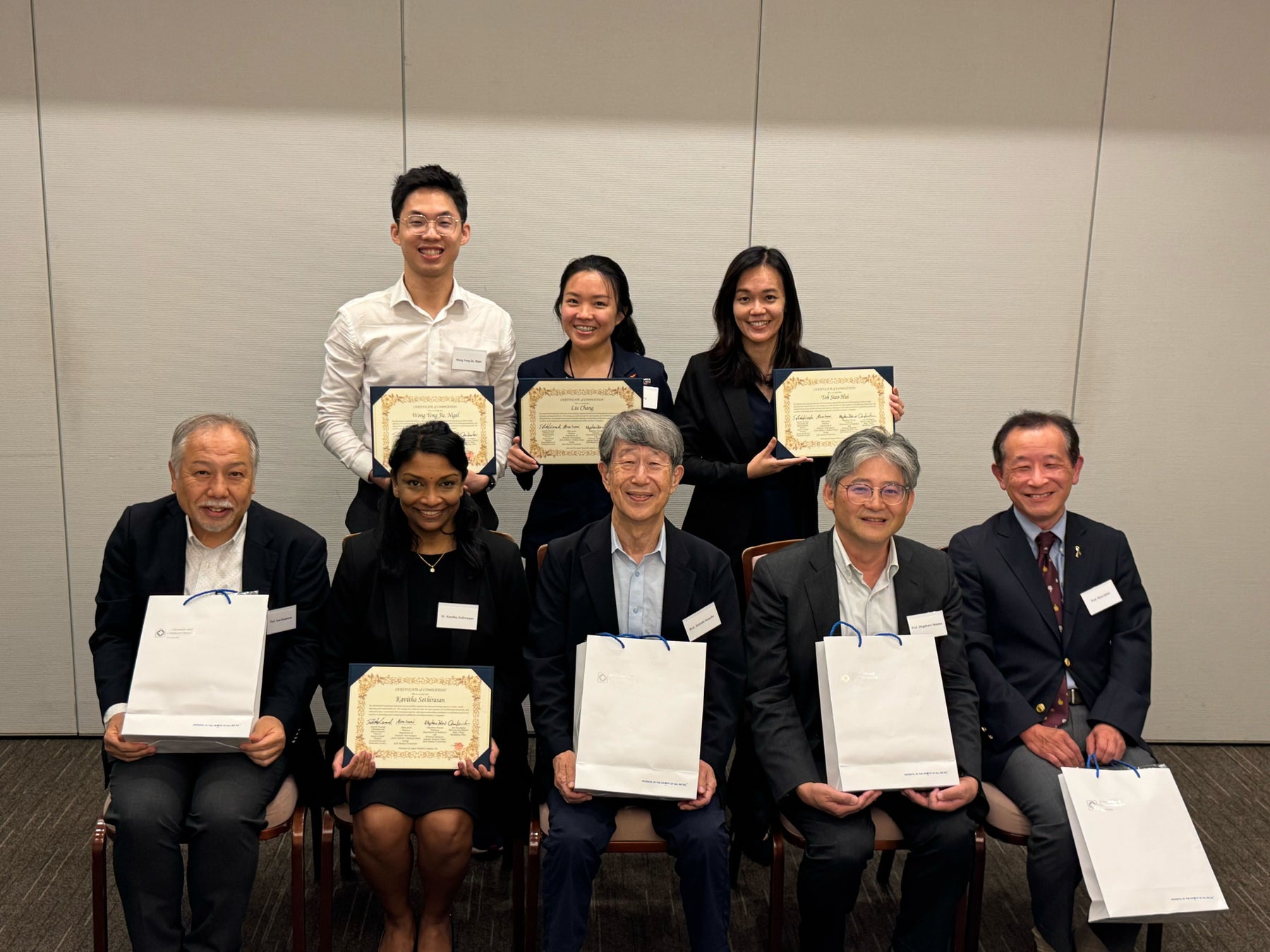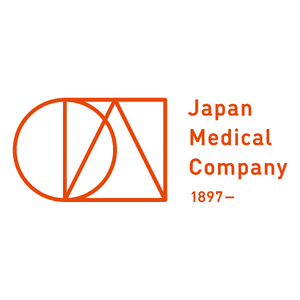Japanese Infant Cranial Shape Remolding Treatment ("Helmet Therapy") Expands Globally
Helmet Therapy Using 100% Made-in-Japan Helmets by Japan Medical Company Commences in Singapore
Cranial deformity treatment using "Qurum Fit" helmet by Japan Medical
Company has commenced at KK Women’s and Children’s Hospital,
Singapore’s largest public institution dedicated to women’s and children’s
healthcare.
シンガポール最大の女性・小児医療専門病院であるKK Women’s and Children’s Hospitalにおいて、株式会社ジャパン・メディカル・カンパニー(東京都中央区、代表取締役CEO大野秀晃)が開発製造する、赤ちゃんの頭のかたちを矯正するヘルメット「Qurum Fit(クルムフィット)」を用いた頭蓋矯正治療が始まりました。

Cranial deformity treatment for infants originated in the United States in the 2000s and is now globally recognized as an authenticated medical practice. In November 2024, the Neonatal
Department of KK Women’s and Children’s Hospital, Singapore’s largest public hospital
specializing in women’s and children’s healthcare, introduced helmet treatment using helmets manufactured by Japan Medical Company.


"Qurum Fit" helmet was selected after a formal bidding process, recognized for its superior
quality, proven track record of over 16,000 cases, and extensive use in university hospitals,
children’s hospitals, and Baby's Head Reshaping Clinic in Japan. To ensure successful
implementation, KKH professionals (neonatologist, physiotherapist, orthotists) visited
Japan. During the visit, they participated in training sessions and workshops, gaining valuable insights into Japan’s advanced cranial medical examination and treatment practices.



Remarks by Directors/Auditors of Japan Cranial Medical Examination and
Treatment Society (JCMETS)

Professor Satoshi Kusuda
Chairperson, JCMETS
Tokyo Healthcare University
In December 2024, KK Women’s and Children’s Hospital (KKH), Singapore’s largest
maternal and child healthcare institution recognized globally for its high standards,
commenced treatment for infant with cranial deformities using helmets manufactured by
Japan Medical Company. This milestone underscores the international recognition of
Japan’s advanced manufacturing technology and its comprehensive system for cranial
deformity screening, diagnosis, treatment, and follow-up care. Infant cranial deformities
require precise evaluation and timely interventions to ensure long-term outcomes,
beyond mere cosmetic concerns. This collaboration establishes shared medical principles,
benefiting children and their families. We look forward to deepening this partnership
through academic exchanges, research initiatives, and personnel collaborations to
extend these benefits globally.

Professor Akira Gomi
Director, JCMETS
Pediatric Neurosurgery
Jichi Children’s Medical Center Tochigi
Jichi Medical University
During the training sessions at KK Hospital, we provided a comprehensive overview of
the natural progression, risk factors, and pre- and post-natal causes of positional cranial
deformities. We also presented advancements in the classification and treatment of
craniosynostosis, emphasizing the growing adoption of suturectomy combined with
helmet therapy. Using real-life examples, we highlighted critical techniques for
differentiating craniosynostosis from positional cranial deformities.
With positional cranial deformities increasing globally, including in Singapore, we
observed significant interest in their high prevalence among children with underlying
conditions. Japan’s lightweight and breathable helmets, designed for comfort in hot
climates, are anticipated to offer valuable solutions for pediatric patients in Singapore.

Professor Shigeharu Hosono
Director, JCMETS
Department of Pediatrics and
Perinatal Medicine
Saitama Medical Center
Jichi Medical University
In Japan, specialized training in pediatric head morphology is limited. To address this,
the Japan Cranial Medical Examination and Treatment Society actively promotes
educational initiatives. During training sessions at KKH, In this training, we used real-life
examples and emphasized to demonstrate that parents' concerns about their children
are not simply about positional cranial deformity problems. We also showed that children
with head shape problems may have abnormal muscle tone and developmental delays at
the initial visit and during treatment. Proper nutritional guidance, essential for successful helmet therapy due to its reliance on head growth, and regular evaluations by
pediatricians and neonatologists were also highlighted.
Singaporean professionals expressed strong interest in Japan’s comprehensive cranial
screening and treatment system, engaging actively in discussions. This initiative not only
introduces Japan Medical Company’s products but also shares Japan’s cranial care frame
work, fostering collaboration to advance pediatric cranial care across the region.

Professor Isao Kusakawa
Auditor, JCMETS
Baby's Head Reshaping Clinic
During the training program with KKH, we examined both medical and societal risk
factors associated with positional cranial deformity, including the historical evolution of
sleep and childcare practices in Japan, a monoethnic island nation with unique cultural
dynamics. Recognizing no universal ideal for head shape, effective treatment requires
addressing societal and cultural factors influencing perceptions of cranial aesthetics,
which vary across ethnic groups.
Post-training discussions explored extending helmet therapy to children with
neuromuscular disorders, addressing anticipated medical needs. We look forward to
collaborating with KKH, Singapore’s leading pediatric institution, to advance joint
research and broaden helmet therapy applications.
Japan Cranial Medical Examination and Treatment Society (JCMETS)
JCMETS unites medical professionals to advance cranial care through research collaboration,
knowledge exchange, and partnerships. It aims to enhance treatments, foster academic
growth, and promote public health.
Implementation in Singapore
The KKH team visited leading Japanese medical institutions utilizing the Company’s helmets
and underwent training on 3D scanning and cushion adjustments to align Singapore’s
treatments with Japan's high standards.
KK Women’s and Children’s Hospital

Established in 1858, KKH has developed into Singapore’s leading institution for obstetrics,
gynecology, pediatrics, and neonatology. The hospital, with a capacity of 830 beds, serves as
a referral center providing tertiary care for high-risk conditions affecting women and children. KKH is committed to raising clinical standards in Singapore while providing seamless services
and compassionate care in a healing environment, ensuring patients have a comfortable
hospital experience.
Infant Cranial Deformities
Infant cranial deformities are commonly caused by external pressures, such as habitual
positioning, though they may result from pathological conditions. In some cases, helmet
therapy addresses positional deformities by utilizing remolding helmets during the critical head
growth phase, typically between three and six months of age.
Japan Medical Company and "Qurum Fit"

Japan Medical Company, a global leader in cranial helmet manufacturing, integrates over
130 years of craftsmanship with advanced 3D printing technology to deliver innovative
healthcare solutions. Established in 1897 as “Ono and Company,” the firm has consistently
advanced medical science, including the introduction of 3D-printed human bone models
in 1999, widely utilized in neurosurgery and otolaryngology for the hands-on training courses
globally.
In 2012, the Company introduced Japan's first domestically produced cranial remolding
helmet, "Aimet," followed by the advanced "Qurum" and "Qurum Fit". Supporting over
16,000 case and developed with pediatric specialists, prescribing physicians undergo
comprehensive training, clinical observation at leading institutions, and continuous education
to ensure adherence to best practices. The initiative underscores the Company’s commitment
to establish global benchmarks in infant cranial care and innovation.
https://japanmedicalcompany.co.jp/
For inquiries, please contact: choice@japanmedicalcompany.co.jp
本リリースに関するお問い合わせ
株式会社ジャパン・メディカル・カンパニー 柳本
TEL:03-5829-8342 / choice@japanmedicalcompany.co.jp
すべての画像
